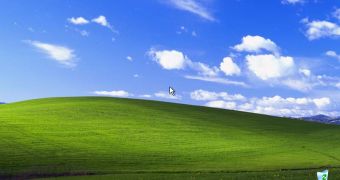Peter Klein, chief financial officer, revealed in the company’s conference call with analysts that users started the migration to a newer Windows version, showing signs that the Windows XP transition could be completed before mid-2014.
Microsoft will stop providing support for Windows XP in April 2014, so consumers are urged to make the switch to either Windows 7 or Windows 8 as soon as possible.
“Well, the one thing I would say is not only over 60% of Windows 7, but about 90% have expressed, they have a plan to do that and so I expect to see sort of steady drumbeat between now and end-of-life for XP support in April 2014 for that to continue because the incentive is there and the express desire to do that has been expressed by our customers, so I would expect to see that continue over the next year, year-and-a-quarter,” Peter Klein explained.
But despite this statement, Windows XP remains the second most popular operating system in the world, according to figures provided by Net Applications, and its market share is only dropping at a very slow pace.
While Windows 7 retains its top spot with 45.35 percent of the market, Windows XP comes second with no less than 38.71 percent. The newly-released Windows 8 is still far away with a market share of 2.25 percent.
Sumir Karayi, CEO of 1E, one of the companies that will assist enterprise customers with their migration from Windows XP, believes that moving all users from the 11-year-old platform will take longer than initially predicted, especially because it could affect productivity.
“Many companies are only now putting together very large and costly projects where they will send people to every desktop and laptop to upgrade to Windows 7. This is going to take months if not years, and certainly go well beyond April 2014, as well as affect productivity,” he said.

 14 DAY TRIAL //
14 DAY TRIAL //